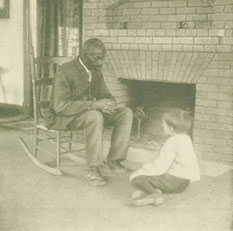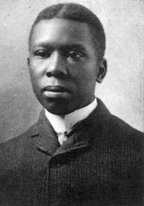 Recently , while researching ghost poetry I came across a poet and story-teller that I really like and felt like his style was right up my alley of spooky historical verse. His poems are simple and stirring and reflect the times in which he lived. I could not decide on just one, so I am including 3 of my favorites so far, that I enjoyed reading. The first one, made me feel like a kid again, sitting by a warm fire on a dark night, listening to a good spooky bedtime story. I hope you enjoy it as much as I did.
Recently , while researching ghost poetry I came across a poet and story-teller that I really like and felt like his style was right up my alley of spooky historical verse. His poems are simple and stirring and reflect the times in which he lived. I could not decide on just one, so I am including 3 of my favorites so far, that I enjoyed reading. The first one, made me feel like a kid again, sitting by a warm fire on a dark night, listening to a good spooky bedtime story. I hope you enjoy it as much as I did.
The Boogah Man
W’en de evenin’ shadders
Come a-glidin’ down,
Fallin’ black an’ heavy
Ovah hill an’ town,
Ef you listen keerful,
Keerful ez you kin,
So ‘s you boun’ to notice
Des a drappin’ pin;
Den you ‘ll hyeah a funny
Soun’ ercross de lan’;
Lay low; dat’s de callin’
Of de Boogah Man!
Woo-oo, woo-oo!
Hyeah him ez he go erlong de way;
Woo-oo, woo-oo!
Don’ you wish de night ‘ud tu’n to day?
Woo-oo, woo-oo!
Hide yo’ little peepers ‘hind yo’ han’;
Woo-oo, woo-oo!
Callin’ of de Boogah Man.
W’en de win ‘s a-shiverin’
An’ dey comes de patterin’
Of de evenin’ rain,
W’en de owl ‘s a-hootin’,
Out daih in de wood,
Don’ you wish, my honey,
Dat you had been good?
‘T ain’t no use to try to
Snuggle up to Dan;
Bless you, dat ‘s de callin’
Of de Boogah Man!
An’ you min’s yo’ pap,
Ef you nevah wriggles
Outen Sukey’s lap;
Ef you says yo’ “Lay me”
Evah single night
An’ puts out de light,
Den de rain kin pattah,
Win’ blow lak a fan,
But you need n’ bothah
‘Bout de Boogah Man!
The next poem on my list of favorites by this author, is The Phantom Kiss. It is a dreamy little poem that made me smile and yet still left me with a little shiver.
The Phantom Kiss
One night in my room, still and beamless,
With will and with thought in eclipse,
I rested in sleep that was dreamless;
When softly there fell on my lips
A touch, as of lips that were pressing
Mine own with the message of bliss—
A sudden, soft, fleeting caressing,
A breath like a maiden’s first kiss.
I woke—and the scoffer may doubt me—
I peered in surprise through the gloom;
But nothing and none were about me,
And I was alone in my room.
Perhaps ‘t was the wind that caressed me
And touched me with dew-laden breath;
Or, maybe, close-sweeping, there passed me
The low-winging Angel of Death.
Some sceptic may choose to disdain it,
Or one feign to read it aright,
Or wisdom may seek to explain it—
This mystical kiss in the night.
But rather let fancy thus clear it:
That, thinking of me here alone,
The miles were made naught, and, in spirit,
Thy lips, love, were laid on mine own.
Lastly, I chose The Haunted Oak. This poem has a lot of historical significance. Being from Mississippi, I have often been attracted to old trees and have often wondered when I am near one that seems alive with a story, if it were possible that the events mentioned in this poem, had ever happened on it’s branches. If only the trees could speak their secrets.
Pray why are you so bare, so bare,
Oh, bough of the old oak-tree;
And why, when I go through the shade you throw,
Runs a shudder over me?
My leaves were green as the best, I trow,
And sap ran free in my veins,
But I say in the moonlight dim and weird
A guiltless victim’s pains.
They’d charged him with the old, old crime,
And set him fast in jail:
Oh, why does the dog howl all night long,
And why does the night wind wail?
And he raised his hand to the sky;
But the beat of hoofs smote on his ear,
And the steady tread drew nigh.
Who is it rides by night, by night,
Over the moonlit road?
And what is the spur that keeps the pace,
What is the galling goad?
And now they beat at the prison door,
“Ho, keeper, do not stay!
We are friends of him whom you hold within,
And we fain would take him away
“From those who ride fast on our heels
They have no care for his innocence,
And the rope they bear is long.”
They have fooled the jailer with lying words,
They have fooled the man with lies;
The bolts unbar, the locks are drawn,
And the great door open flies.
Now they have taken him from the jail,
And hard and fast they ride,
And the leader laughs low down in his throat,
As they halt my trunk beside.
Oh, the judge, he wore a mask of black,
And the doctor one of white,
And the minister, with his oldest son,
Was curiously bedight.
Oh, foolish man, why weep you now?
And the time will come when these shall dread
The mem’ry of your face.
I feel the rope against my bark,
And the weight of him in my grain,
I feel in the throe of his final woe
The touch of my own last pain.
And never more shall leaves come forth
On the bough that bears the ban;
I am burned with dread, I am dried and dead,
From the curse of a guiltless man.
And ever the judge rides by, rides by,
And goes to hunt the deer,
And ever another rides his soul
In the guise of a mortal fear.
And ever the man he rides me hard,
And never a night stays he;
For I feel his curse as a haunted bough,
“The Haunted Oak,” written and publsihed in 1900, could have been based on one of the 105 lynchings that occurred that year, but it was inspired in Washington, D.C., by a story that Dunbar heard an old black man relate concerning his nephew in Alabama who bad been hanged on an oak tree by a mob of whites after having been falsely accused of “a grave crime.” According to the story, shortly afterwards the leaves on the limb used for the lynching yellowed and fell off; and, unlike the rest of the normal tree, the offending bough shriveled and died. Townspeople began to call the tree “the haunted oak.” Dunbar, using the ballad form to enhance the superstition, personifies the tree and makes it the most sensitive and remorseful participant in the crime.” from a review by James A. Emanuel
About The Author
Paul Lawrence Dunbar
 Paul Laurence Dunbar was the first African-American to gain national prominence as a poet. Born in 1872 in Dayton, Ohio, he was the son of ex-slaves and classmate to Orville Wright of aviation fame.
Paul Laurence Dunbar was the first African-American to gain national prominence as a poet. Born in 1872 in Dayton, Ohio, he was the son of ex-slaves and classmate to Orville Wright of aviation fame.
Dunbar was prolific, writing short stories, novels, librettos, plays, songs and essays as well as the poetry for which he became well known. He was popular with black and white readers of his day, and his works are celebrated today by scholars and school children alike.
His style encompasses two distinct voices — the standard English of the classical poet and the evocative dialect of the turn-of-the-century black community in America. He was gifted in poetry — the way that Mark Twain was in prose — in using dialect to convey character.
He was interred in the Woodland Cemetery in Dayton, Ohio. To read more about this poet and writings, please see the resource links below. See his Find A Grave Memorial Here:
http://www.findagrave.com/cgi-bin/fg.cgi?page=gr&GRid=307
Research Links
More Poems : http://www.english.illinois.edu/maps/poets/a_f/dunbar/additionalpoems.htm
http://www.poets.org/poet.php/prmPID/302
“The Crowded Years: Paul Laurence Dunbar in History” in A Singer in the Dawn: Reinterpretations of Paul Laurence Dunbar. Ed. Jay Martin. New York: Dodd, Mead & Co., 1975. Copyright © 1975 by Jay Martin.
Black Poets of the United States, from Paul Laurence Dunbar to Langston Hughes, Urbana: University of Illinois Press, 1973. Copyright © 1973 by the Board of Trustees of the University of Illinois.
http://www.libraries.wright.edu/special/dunbar/poetryindex/the_boogah_man.html
http://www.libraries.wright.edu/special/dunbar/poetryindex/the_phantom_kiss.html
http://www.libraries.wright.edu/special/dunbar/poetryindex/
http://www.libraries.wright.edu/special/dunbar/bookcover_gallery.html
University of Dayton –http://www.dunbarsite.org/
Modern American Poetry Web Site – English Department at the University of Illinois at Urbana-Champaign
http://www.english.uiuc.edu/maps/poets/a_f/dunbar/dunbar.htm
Paul Laurence Dunbar House Ohio Historical Society
http://www.ohiohistory.org/places/dunbar/
Paul Laurence Dunbar PAL: Perspectives in American Literature A Research and Reference Guide – An Ongoing Project
http://www.csustan.edu/english/reuben/pal/chap6/dunbar.html
Paul Laurence Dunbar Collection at the Dayton and Montgomery County Library
http://home.dayton.lib.oh.us/archives/dunbar/DTABCONTENTS.html
The Writings of Paul Laurence Dunbar Springfield Library
http://www.springfieldlibrary.org/dunbar/dunbar.html
Ohio Memory – Paul Laurence Dunbar Scrapbook
http://worlddmc.ohiolink.edu/OMP/YourScrapbook?scrapid=6698
http://www.libraries.wright.edu/special/dunbar/gallery/dunbar_photos.html
compiled and posted by Angela L Burke – MSSPI


LOL!